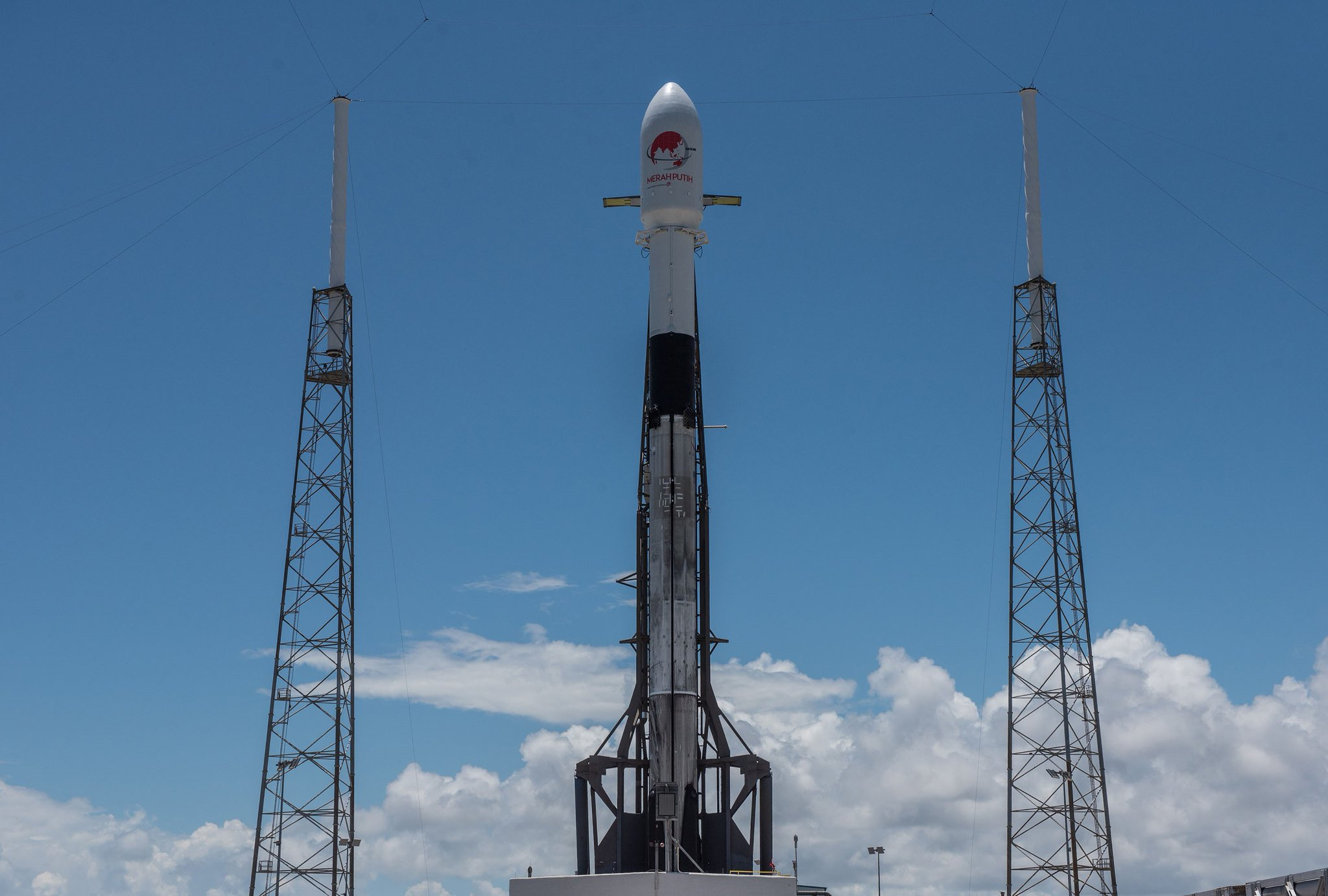SpaceX Delays Historic Small-Satellite Launch (Again)

Breaking space news, the latest updates on rocket launches, skywatching events and more!
You are now subscribed
Your newsletter sign-up was successful
Want to add more newsletters?

Delivered daily
Daily Newsletter
Breaking space news, the latest updates on rocket launches, skywatching events and more!

Once a month
Watch This Space
Sign up to our monthly entertainment newsletter to keep up with all our coverage of the latest sci-fi and space movies, tv shows, games and books.

Once a week
Night Sky This Week
Discover this week's must-see night sky events, moon phases, and stunning astrophotos. Sign up for our skywatching newsletter and explore the universe with us!

Twice a month
Strange New Words
Space.com's Sci-Fi Reader's Club. Read a sci-fi short story every month and join a virtual community of fellow science fiction fans!
Update for Nov. 30: The SSO-A mission is now scheduled to launch on Sunday, Dec. 2 at 1:31 p.m. EST (1831 GMT).
SpaceX has once again delayed the launch of its historic SSO-A ride-share mission, which was scheduled to launch 64 small satellites on a twice-reused Falcon 9 rocket on Wednesday (Nov. 28).
Dubbed "SSO-A: SmallSat Express," the mission was scheduled to lift off from Vandenberg Air Force Base in California on a Falcon 9 rocket at 1:31 p.m. EST (1831 GMT) before landing on a drone ship in the Pacific Ocean. If eventually successful, this would be the third launch and landing of this "Block 5" Falcon 9 rocket booster — a historic first for SpaceX's reusable rockets.
But now, the rocket and its flock of small satellites will be grounded until at least Saturday (Dec. 1), according to the U.S. Air Force 30th Space Wing at Vandenberg. "The SpaceX Falcon 9 SSO-A launch is delayed due to weather," the 30th Space Wing wrote on Facebook. [SpaceX's 1st 'Block 5' Falcon 9 Rocket: The Launch Photos]
SpaceX later added in a tweet that the delay was due to extreme high altitude winds, and that the company would announce a new launch date "once confirmed with the Range."
This is the second time this month that the SSO-A mission has been delayed; an earlier launch attempt, on Nov. 19, was postponed "to conduct additional preflight inspections," SpaceX officials said. SpaceX has not yet issued a statement about today's delay.
Breaking space news, the latest updates on rocket launches, skywatching events and more!
Not only will the SSO-A mission make history by launching and landing a reusable rocket a third time, but it will also be the largest ride-share mission to launch on a U.S. rocket, according to Spaceflight, the mission management provider.
SpaceX will likely post an update on the SSO-A mission on Twitter once a new launch date is confirmed, and you can follow the 30th Space Wing on Facebook for additional weather updates and an event once a new date/time is chosen.
Email Hanneke Weitering at hweitering@space.com or follow her @hannekescience. Follow us on Twitter @Spacedotcom and on Facebook. Original article on Space.com.

Hanneke Weitering is a multimedia journalist in the Pacific Northwest reporting on the future of aviation at FutureFlight.aero and Aviation International News and was previously the Editor for Spaceflight and Astronomy news here at Space.com. As an editor with over 10 years of experience in science journalism she has previously written for Scholastic Classroom Magazines, MedPage Today and The Joint Institute for Computational Sciences at Oak Ridge National Laboratory. After studying physics at the University of Tennessee in her hometown of Knoxville, she earned her graduate degree in Science, Health and Environmental Reporting (SHERP) from New York University. Hanneke joined the Space.com team in 2016 as a staff writer and producer, covering topics including spaceflight and astronomy. She currently lives in Seattle, home of the Space Needle, with her cat and two snakes. In her spare time, Hanneke enjoys exploring the Rocky Mountains, basking in nature and looking for dark skies to gaze at the cosmos.
